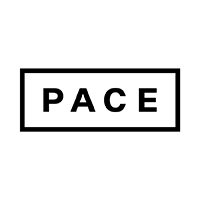Artists Condemn Immigrant Detention With Skywritten Messages
By Kaitlin Hao

A
Between July 3–5, a fleet of skytyping planes wrote out messages by 80 artists and cultural workers above 80 sites in the United States, as part of the collaborative project “In Plain Sight" led by multidisciplinary artists Rafa Esparza and Cassils. The sites included Immigration and Customs Enforcement detention camps and immigration courts, and cities along the US-Mexico border. Coinciding with the US’s Independence Day, the project sought to expose the unethical imprisonment of those awaiting decisions regarding their immigration cases, many of whom are fleeing poverty, persecution, or violence in their home countries.
Each participant contributed one message written out among the clouds. Some Asian-American artists considered racist immigration policies and revisited painful modern histories. First-generation Indian-American artist Arshia Fatima Haq noted the prejudice that Muslim communities endure. Her message, “Azadi,” meaning freedom in many South and West Asian cultures, was written in Arabic over an immigrant intake release facility in Orange County. In an online statement, she says, “This kind of exclusivity, exclusion, and deciding who belongs and who doesn’t is a trend we’re seeing all over the world right now, especially in places like India. It's important for me to participate in a project like this because it's creating awareness of transnational solidarities and movements, and working against fascist sentiments everywhere.”
Japanese-American artists such as Devon Tsuno, Karen L. Ishizuka, Bruce Yonemoto, and Tina Takemoto reflected on the similarities between the current separation of immigrant family members incarcerated in detention facilities and the separation of families during the Second World War, when Japanese-Americans were sent to US internment camps. Tsuno’s chosen message, flown over Laredo, which sits on the US-Mexico border, is a phone number that, when called, plays recorded readings of correspondences from detained immigrants to their external supporters. The artist explained that this is “another opportunity to talk about things that are hard to talk about in the present day . . . We could talk about what happened in the past, but there’s shit happening right now, and that’s what we need to be moving to change.”
Several artists selected messages that enhanced the visibility of imprisoned transgender immigrants. Others advocated for related issues such as the Black Lives Matter platform, which fights against racism and police brutality against African-Americans, or drew attention to the oppression of Native Americans.
“In Plain Sight” exemplifies how social justice issues resonate with and amplify each other despite the current divisive political climate—a testament to the saying that we all live under the same sky.
Kaitlin Hao is an editorial intern at ArtAsiaPacific.
To read more of ArtAsiaPacific’s articles, visit our Digital Library.






